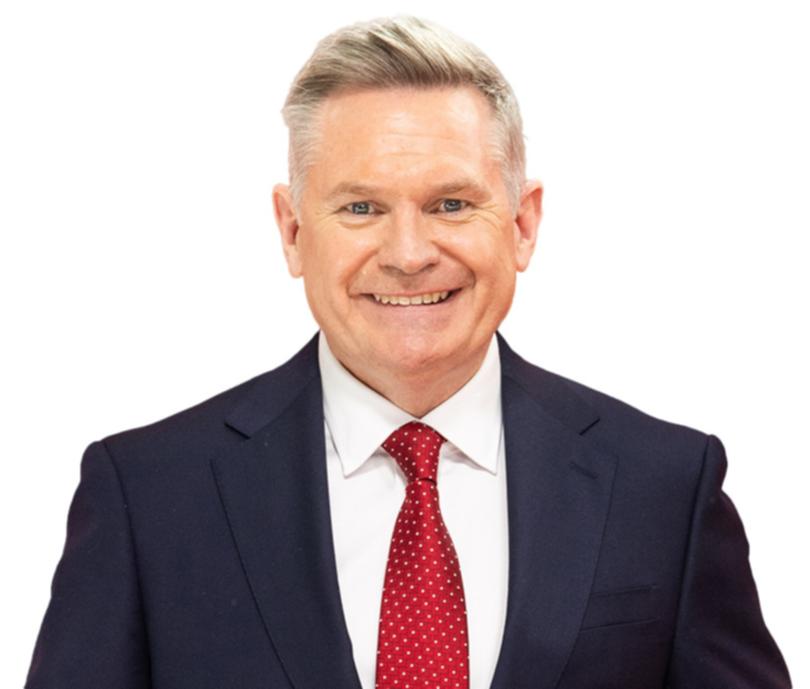MICHAEL USHER: I’m with Oprah on weight loss drugs like Ozempic, we need to drop the guilt and blame
TV queen Oprah is very smartly drawing a line in the sand on an issue that has stumped governments and health authorities in recent decades.

It would seem we’re on the brink of a health revolution. A magic needle that’s not only changing lives but will almost certainly turn public health policy spending on its head.
A miracle solution to fight fat.
It’s long been the flippant wish of many a person struggling with weight: “Why can’t there just be a pill or jab to shrink my waistline!”
Sign up to The Nightly's newsletters.
Get the first look at the digital newspaper, curated daily stories and breaking headlines delivered to your inbox.
By continuing you agree to our Terms and Privacy Policy.Well, now there is. And if there was any doubt that we are at a monumental turning point in the battle of the bulge, TV royalty Oprah Winfrey has overnight just gone primetime in the United States declaring in a much-hyped weight loss special that the revolution is here and now.
And she’s waving the banner for all like her who have had a lifelong struggle with weight, shame and blame.
Unlike many celebrities who’ve transformed their bodies and been coy to divulge the secrets of their weight wins after years of weight gains, Oprah has revealed she’s taken weight-loss medication.
Ozempic or Wegovy or Mounjaro, she’s been careful not to say.
In part because she was a long-time board member of Weight Watchers, but also careful I’d imagine of what her considerable influence might do if she was seen to endorse a particular kind of weight-loss medication.
She quit the Weight Watchers board and now is unshackled and able to discuss the subjects of her much-publicised weight loss journey in the way she does best — big television specials speaking directly to an audience that is hands down losing the war on weight.
Oprah is making a painful struggle mainstream. She’s doing what she does best.
Despite her billions in wealth, she’s letting everyone know all her money and influence doesn’t shift the kilos.
Even though she’s sometimes made a virtue of her weight loss journeys, she said it mostly left her shamed and blamed, citing a particularly cruel headline about her “bumpy, lumpy body”.
She’s telling her audience she rides with them on the daily, sometimes hourly, rollercoaster of regret, shame and loathing when it comes to weight.

I think what she’s doing very smartly is drawing a line in the sand on an issue that has stumped governments and health authorities in recent decades.
She’s ending the unsuccessful blame game. Fast food, sugar-loaded drinks, idle kids, lazy parents, no self-control. All the reasons we’ve ballooned as a population just don’t matter beyond this point, would seem to be part of Oprah’s point.
She’s saying we’re here, there’s now a fix, let’s move on.
No point trying to tax the food and beverage companies for trans fats and sugars, no point loading more loathing into family life.
There is light in this fat fight, she’s saying, so let’s move toward it without the guilt and blame of how we got here.
And do not judge me for taking an injection invented by clever medical researchers, if it can save me. And definitely don’t blame me if my weight gain has come from medical or emotional trauma.
Now, I think I’m with Oprah on this, and I didn’t think I would be. But with every problem that’s successfully resolved it takes a line in the sand somewhere.
An acceptance or a forgiveness of past problems to fix the problem, without blame or grievance about what’s been.
Would we have rather motivated a population to watch their diets and move to stop the rise in obesity? Of course, but it’s clearly not as simple as that or we wouldn’t have this health crisis.

My weight’s gone up and down like a yo-yo over the years. Working as a correspondent in London in the early 2000s I jumped on the scales and hit 104.5kg which led my cameraman Ben to unkindly joke that I’d become an FM radio frequency!
I should say we both laughed. But in any year I can put on and lose 6kg. One time I lost 10kg in three months covering the Iraq invasion, but I wouldn’t recommend a Baghdad diet to lose weight.
So, would I want an injection to lose weight? Yes. I would. If my doctor thought it was necessary. But I’d hate to think what people thought of me. And this is Oprah’s point.
It’s seen as a cheat’s way out of a problem that came about because you didn’t have enough self-discipline. Already the wonder drug that could truly transform or save a life and improve mental health has been stigmatised.
Oprah says the medication is a “maintenance tool” not a cure, and it brought her a sense of hope.
Others are going much further and calling it the miracle shot, but it’s not quite that either. New side effects are surfacing every week and some patients are struggling. And some are going to dangerous and illegal lengths to buy the drugs on the black market.
Supply has become a critical issue.
It’s a disgrace that some doctors are being pressured into wrongly prescribing Ozempic in particular, which is designed for diabetes and some other health conditions. The patients who need the drug are missing out to the people who think they need the drug.
Vanity is snatching supplies from the people who need it to live.
The statistics tell us why these drugs are so desperately needed.
In Australia, 66 per cent of us are overweight or obese, according to the Bureau of Statistics. In that number, 31 per cent are considered obese. These rates are rising every year. It ranks us as the ninth fattest country in the world.
In the US, it’s hard to settle on the rate of people who are regarded as overweight, but the obesity rate is a staggering 42 per cent of the population, and it’s almost 20 per cent in adolescents.
In 2018, it was estimated that overweight and obesity cost the Australian economy $11.8 billion. In the United States it’s an astronomical $173 billion.
It all sounds terrible but imagine — and it’s easy to imagine this now — that in a short few years these simple injections start shrinking Australia, and that enormous medical liability.
Should these drugs in fact be subsidised?
There’s good argument that doing so would help solve a public health problem. But then would the drug makers spike the price?
Whatever happens in this super-sized situation, let’s downsize the problem, and free ourselves from fat shaming.
